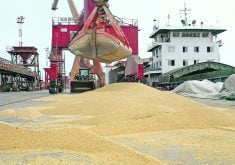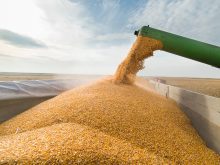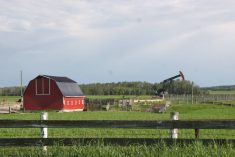Farmers can double or triple the “horsepower” in their businesses by putting to work the skills and talents of all family members, according to management consultant Rob Napier.
But all too often, farmers overlook human resources by leaving their spouses out of major decisions.
Family teamwork has never been more important than in this period of rapid change, said Napier, who talked to farmers in Winnipeg and Red Deer recently about the characteristics of successful farmers.
To move businesses forward, he said farmers need to make sure their spouses, parents, and children learn new skills and cultivate their talents.
Read Also

Flax sector sees omega-3 opportunity
SASKATOON — A global shortage of omega-3 oils could be an opportunity for the flax sector, says an industry official….
Napier said agriculture tends to be too “male-driven” and too focused on production. Women tend to be more objective about farm goals and needs, he said, and less concerned about traditions and the business’s “sacred cows.”
They are often more willing to learn new skills, and are adept at identifying customers and examining their needs.
Top farmers always have a market focus, Napier said. They find their markets first and then build a production system around them. Top farmers don’t sell commodities on spot markets.
“That’s a mug’s game.”
They hoard their capital so it can be invested in technology and learning, as well as operating costs, rather than tying it up in fixed assets.
They are skilled planners, control their assets in innovative ways, and are excellent risk managers, he said.
They are excellent environmental managers who are willing to “discipline” other producers for careless attitudes or actions. Top producers recognize the importance of environmental stewardship to consumers.
“One Rambo … can destroy an industry.”
Top farmers keep on top of new ideas, frequently describing their operations as ongoing experimental sessions, he said.
They are strong information managers. For example, Napier said he knows one American farmer who spends the first three hours of each morning at his desk analyzing information and making decisions.














